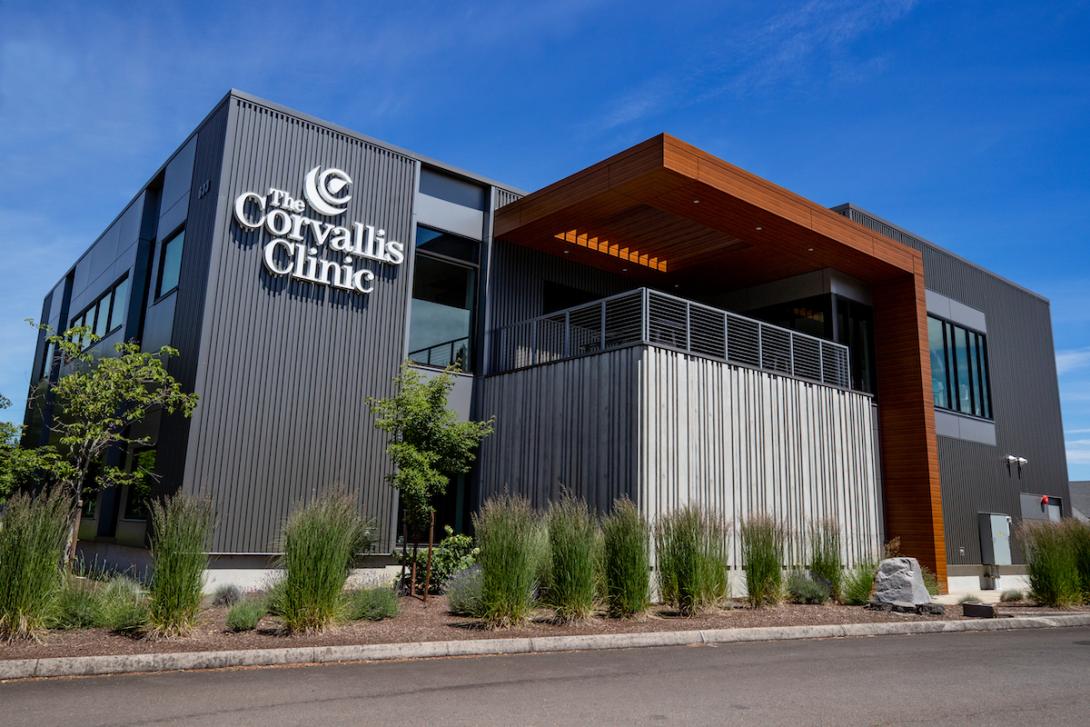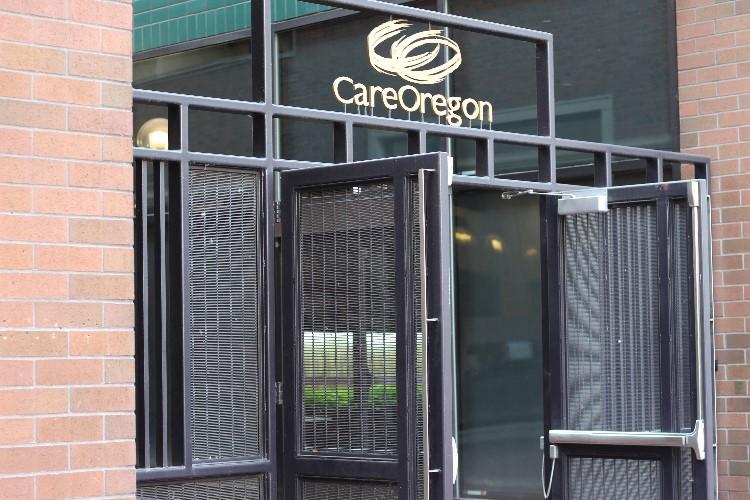When Oregon lawmakers created a program in 2021 to screen major health care mergers and other deals for harmful effects, they told the state to impose fees to cover all its costs.
But that hasn’t happened.
Instead, fees paid by corporate applicants have covered only a small portion of the Oregon Health Authority’s ballooning costs for the program, according to records obtained by The Lund Report.
To pay for the rest, officials are using funds that otherwise would be spent on other needs. And that means thorny decisions may lie ahead for the program, which advocates say is providing a crucial service.
“It just hasn’t worked out where the fees are appropriately covering the cost,” David Baden, the agency’s deputy director for programs and policy told The Lund Report.
Two years after the Health Care Market Oversight program’s creation, agency officials set fees that mergers and acquisitions applicants must pay to have the program conduct its required review — a process intended to allow for denial or for conditions to ensure patient access and protect against cost hikes.
But agency officials now acknowledge the fees adopted in January 2023 are failing to cover actual costs — and they want at least some of the costs to be shouldered not by applicants, but by the state’s General Fund. That’s the pot of money fed by taxes that is used by lawmakers to fund a variety of discretionary programs.
“We just don’t know when we’re going to get these transactions, and so it makes it hard to run this program, because we need consistent staffing to be able to keep this going.”
The question of how to pay for the high-profile program is growing as its workload has taken off — fueled by a string of major health care deals that have drawn intense public scrutiny. The program, with a staff of just eight people, has shot from obscurity to an outsized place in the health authority’s public profile, even as concerns nationally over health care consolidation have similarly skyrocketed.
Since its inception in spring 2022, the program has collected just $214,000 in fees from applicants, according to data provided to The Lund Report under a public records request. But expenses have far outpaced that.
The staff of eight costs about $1.2 million a year, health authority records indicate. Beyond that, the program enlists a lot of help from other Oregon Health Authority workers, according to the program’s manager, Sarah Bartelmann.
“There’s a lot of coordination and relying on other experts across the agency infrastructure,” she said.
In addition, the program has already shelled out $520,000 for help from lawyers at the Oregon Department of Justice, the records show.
“I would hate to think the need to cut corners from a budget point of view affected the process. I do think there are already examples of transactions that need to be evaluated more thoroughly, and that doing so would create considerable costs.”
Some applicants have received waivers
The 2021 law lets the health authority hire outside private-sector experts to help evaluate proposed deals, and requires the agency to bill the applicants for the full cost. But the agency hasn’t stuck to that. The agency has spent $723,000 hiring outside consultants, mostly a single Philadelphia-based law firm. But it has required applicants to pay only $551,000 of that, and has given some applicants waivers from paying the remainder.

The program’s listed overall costs do not include the legal expense of defending the health authority and the program against a lawsuit filed in federal court by the Hospital Association of Oregon. The lawsuit, dismissed in May, sought to eliminate the program.
To be sure, the program’s costs are small compared to the health authority’s overall annual budget of roughly $16 billion a year. For the time being, the agency is absorbing the new program’s costs, OHA officials said.
Records illustrate how far short of covering actual costs the one-time fees fall.
When The Corvallis Clinic sought approval to sell itself to UnitedHealthcare, it paid a $2,000 fee. But the state program’s staff ran up a $19,000 legal tab getting legal help from the Department of Justice, in addition to an unspecified amount of time the program staff spent evaluating the deal and reviewing the hundreds of public comments that poured in.
The state’s cost to review the proposed CareOregon/SCAN case was also heavy, but the companies paid no fee at all, because they applied just days before the agency put the new fees into place.. For the case, in addition to OHA staff time, the program ran up a $48,500 legal tab with the Department of Justice, and spent a further $455,000 hiring the Morgan Lewis & Bockius law firm in Philadelphia, which charged between $550 and $1,550 an hour for its work.
The program required CareOregon/SCAN to pay only $380,000 of the $455,000 Morgan Lewis tab.
That’s because of how the agency interpreted the law setting up the program. In its rulemaking, the agency decided it would only seek reimbursement for expert costs for the complex “comprehensive review” process, and if it had notified the applicant in advance that it intended to hire outside help. Some Morgan Lewis work was for the preliminary review and before the agency notified the applicant it intended to hire outside help, said health agency spokesperson Amy Bacher.
CareOregon eventually dropped its application, soon after it received a scathing draft review from the health authority that said the proposed merger would have benefitted CareOregon board members but not the hundreds of thousands of Oregon Health Plan members insured by the nonprofit.
Baden said part of the problem is projecting workload.
“We just don’t know when we’re going to get these transactions, and so it makes it hard to run this program, because we need consistent staffing to be able to keep this going.”
Any permanent funding fix will have to wait for the 2025 legislative session, he said.

Funding should not impair work, advocate says
So far, the program has reviewed 18 deals, and more are on the horizon. A growing number of Oregonians realize they now have the chance to learn about and comment on health care deals that in the past would often have been planned and completed in secret:
- The proposed Kroger-Albertsons pharmacy merger has drawn over 150 written comments and generated four public community meetings with more to come.
- Earlier this year, UnitedHealthcare’s rapid-fire purchase of The Corvallis Clinic drew 340 written comments, plus a protest petition with over 600 signatures.
- The biggest deal yet on the program’s plate -- Oregon Health & Science University’s proposed acquisition of the Legacy Health hospital chain -- is likely to draw heavy public comment when the parties file for approval later this year.
Now, though, the question of how to pay for the program is getting attention.
State Sen. Deb Patterson, D-Salem, said she’s examining the matter in advance of next year’s legislative session but hasn’t decided yet how to deal with it. “I am aware of this issue regarding fees for the HCMO program,” Patterson said in an email to The Lund Report. A sponsor of the legislation creating the program, Patterson heads the Senate’s health care committee.
Dr. John Santa, a former member of the Oregon Health Policy Board, which oversees the health authority, said the agency should boost the fees it charges for complex cases. The state also should allocate General Fund dollars to pay for increasing the program’s public outreach work on cases, he said.
One thing he doesn’t want to see is the program hampered by lack of money.
“I would hate to think the need to cut corners from a budget point of view affected the process,” Santa said. “I do think there are already examples of transactions that need to be evaluated more thoroughly, and that doing so would create considerable costs,” he said. For example, he said, program staff clearly had trouble contacting and getting comment from patients and families affected by deals that have consolidated hospice facilities.
The agency is now trying to figure out what mix of fees and General Fund money are needed to run the program, Baden said.
“We have fielded a lot of questions from lawyers across the country (to see) if they need to go through the program."
Fees set on sliding scale
In creating the program, legislators told the agency to charge fees on a sliding scale based on the applicant’s size to cover all administrative costs including staff.
In addition, the law says the agency shall charge applicants for the full cost of any outside consultants needed to help on cases.
The agency launched the program in March 2022, but didn’t charge any application fees. Agency officials reasoned that they didn’t want to spring new costs on health care deals that might have been in the works before the program started.
That meant that one deal that subsequently consumed large amounts of Oregon Health Authority and Oregon Department of Justice time – the proposed merger of Portland-based Medicaid insurer CareOregon into California-based insurer SCAN Group – never paid any application fees. CareOregon filed its application just days before the new fees finally took effect on Jan. 1, 2023.
The fee schedule adopted in 2023 requires a $2,000 “preliminary review” application fee, plus an additional fee of up to $98,000 if cases prove to be complex and require a “comprehensive review.”
But the agency has realized cases can eat up OHA staff time even if they aren’t complex. Plus, the program staff sets conditions on some deals they approve, and the staff must conduct periodic follow-up checks to ensure the conditions are followed, Baden said.
In addition, staff have spent a lot of time responding to inquiries from health care entities that haven’t even applied, said the program’s manager, Sarah Bartelmann.
For example, the program has already sought more than $7,000 worth of legal help from the Oregon Department of Justice on the proposed OHSU/Legacy deal even though OHSU/Legacy haven’t yet submitted an application, the program’s financial records show.
“We have fielded a lot of questions from lawyers across the country (to see) if they need to go through the program,” Bartelmann said.